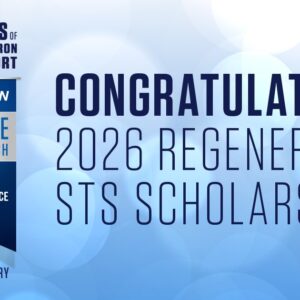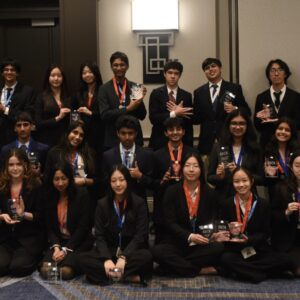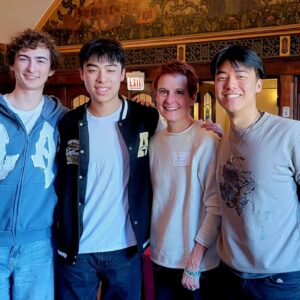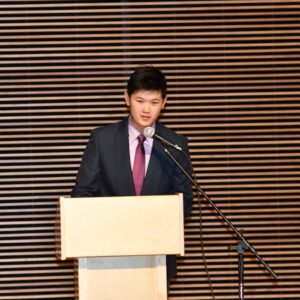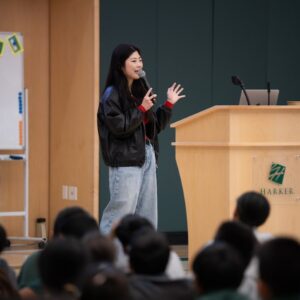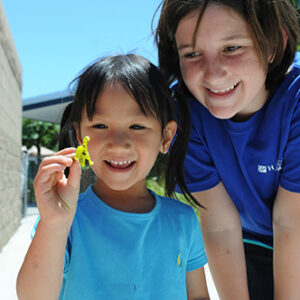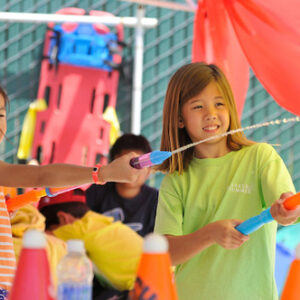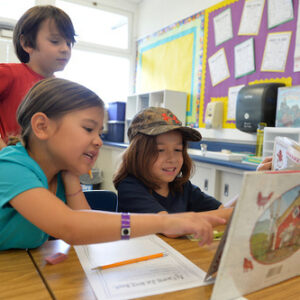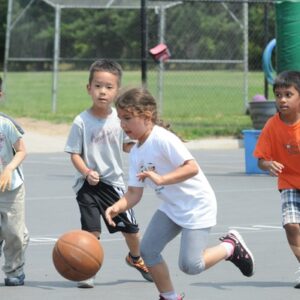Families looking for a two-week summer camp for grades 1-4, or for a different kind of academic experience, find it in Harker’s thematic curriculum option. Like their four-week counterparts, two-week campers study in the morning and join activities in the afternoon. But instead of focusing primarily on math and language arts in the morning, they examine a broad topic from a variety of disciplines.
In this year’s thematic program, titled Big Blue Marble, three sessions explored Africa/Asia, Australia/Antarctica and the Americas, respectively. The curriculum integrated science, history, the arts and social studies–and of course math and language arts–into a multidisciplinary study of the continents.
Veteran Harker teacher Kathleen Ferreti taught all three modules this summer. Early on in their study of Antarctica, she equipped the students with compasses, which they calibrated and learned to use before trooping outside. “If we’re going exploring like scientists, we need to be able to find our way,” she says.
During this hands-on lesson, they answered questions like: What is the eastern- or western-most part of the campus? What direction is our classroom from where we now stand? “My classroom has no walls,” says Ferreti. “My objective is to take it outside as much as I can, and to do real-life stuff.”
When they did get back inside, the students were tasked with making their own compasses by rubbing a steel needle in one direction on a magnet, attaching a cork and floating the apparatus in water. It points north!
Some of the lessons tend to integrate a lot of science, like this one did. Others lean toward culture and the arts. Among Ferreti’s many talents is taiko drumming. During the study of Asia, her taiko group paid a special visit to the class.
During the Africa module, students made hummus and fufu (sweet potato balls). They also used a spaghetti maker, not to make pasta but to press beads for African-style necklaces. They studied mummies and hieroglyphic writing, and created 3D square and triangular pyramids.
In each two-week session, students write in their travel journals, count in different languages and read fiction–some historical, some classic.
Language arts and mathematics are inseparable when it comes to reading and discussing “One Grain of Rice,” a folk tale that has taken many forms throughout Asia. It always features a peasant hero who is awarded one grain of rice, doubled each day for a month. He ultimately feeds his whole village; meanwhile, Ferreti uses a matrix to show each step, from one to more than 1 billion grains of rice.
“I really enjoy the integrated curriculum. It gives me a chance to explore things in a way I don’t have time to do during the school year,” she says, adding that students who attend Harker also seem to find it something of a break. “It’s a chance to look at things in a different way and have a lot of fun doing it.”
The thematic approach appeals to more than just Harker regulars. Third-grader Natasha Goudarzi attended Harker for the first time this summer to study the Americas. Of Ms. Ferreti she says, “She’s really nice and cheerful and we do a lot of games with her and fun stuff.”
In class, Natasha made fast friends with Hailey Horton, Gr. 3, and her sister, Caroline, Gr. 4, both of whom were also new to Harker. The class read “The Great Kapok Tree,” and the girls enjoyed creating a play in which each student took on a rainforest animal role (or three) and admonished a would-be woodcutter.
Their favorite thing, however, was a taste test of Brazilian agricultural exports, specifically chocolate and bananas. The coffee beans were not for tasting, said Caroline, “but we got to smell them.”
“And some crunched-up ones, too,” volunteered her sister. “They smell a lot like coffee.”

